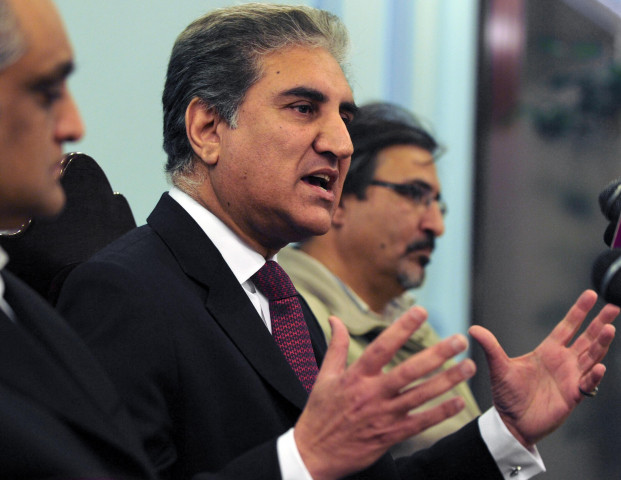US-Iran conflict and Pakistan
Should Pakistan pick sides? No. As the Foreign Minister has announced, Pakistan would remain neutral.

Foreign Minister Shah Mehmood Qureshi. PHOTO: AFP/FILE
Forward some 10-15 years, the Islamic Revolution has taken place and Khomeini is now in power. Iran isn’t an ‘island of stability’ but a state that poses threat to world and regional peace. It must be kept in close check.
Zoom out a bit. Now you see other stakeholders UK, France, Germany, China and Russia agreeing with the US. The Joint Comprehensive Plan of Action is signed in 2015, putting Iran under nuclear and economic restrictions.
Comes 2018: President Trump terms it ‘one of the worst’ agreements the US has entered into and re-imposes sanctions. Iran refuses the conditions put on the table and confrontation escalates into a ready-for-war like situation.
In the past few weeks, one episode after the other at the Strait of Hormuz has added fuel to the US-Iran tension, with the downing of a US drone by Iran being the latest.
Unlike post-9/11, the US is less likely to find allies for a full-on war with Iran. The world order is more intertwined and complex with vested interests than it was in the last decade. Take Pakistan’s case. Before aligning itself with either, if it does at all, Pakistan has to consider its relation with other stakeholders as well — China, Saudi Arabia, Russia, the UAE, Qatar and Turkey — with respect to recent economic and foreign policy measures.
Yet, Pakistan’s relations with both US and Iran have been intertwined in the past. Map it on to a timeline and a similarity emerges: in the 1960s under General Ayub Khan and in the 1970s under Bhutto, Pakistan had an inclination towards the US and was friendly with Iran. It received support from India during its war with India twice and in countering turmoil in Balochistan. After the Islamic Revolution and Afghan War, where Iran’s relations with the US reverse, they did leave an impact on Pakistan as well that is often accused of supporting the Sunni Taliban.
Should Pakistan pick sides? No. As the Foreign Minister has announced, Pakistan would remain neutral. It’s a lose-all situation: with continued sanctions, Iran’s economy will be strained. Its national military arm is not completely equipped to fight a much larger and better-equipped force. And the long-term effects of war will spill over to the world economy as its oil industry is affected. Imagine if the Strait of Hormiz is blocked, shipments of daily global oil exports could drop by 30%. The world is changing; the power structure is changing too. The new ‘Look East’ policy adopted by most countries in the region may have a direct correlation with the Belt & Road Initiative being driven by China. Pakistan’s reliance on CPEC makes it an important player in the region. Our strategic location has gained more significance in lieu of this major paradigm shift in the balance of power. The US may be a world superpower but it no longer remains the only one calling political and economic shots. Before the US takes a stance on Iran, it must evaluate the dent it may cause to its positioning in the Middle Eastern region as a consequence of the US-Iran tensions. Not to mention, Pakistan must play its role in ensuring peace and stability.
Published in The Express Tribune, June 26th, 2019.
Like Opinion & Editorial on Facebook, follow @ETOpEd on Twitter to receive all updates on all our daily pieces.














COMMENTS
Comments are moderated and generally will be posted if they are on-topic and not abusive.
For more information, please see our Comments FAQ